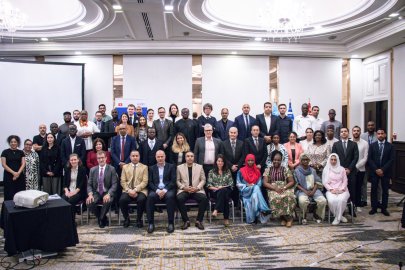Improving Repatriation: IOM Workshop in Tunisia
The global landscape of migration continues to evolve, and repatriation has become a critical topic in the realm of immigration policy. The International Organization for Migration (IOM) recently conducted a workshop in Tunisia aimed at enhancing the experiences of repatriated individuals. This initiative is part of broader efforts to streamline immigration processes and ensure that returning citizens are adequately supported.
Understanding Repatriation in the Context of Global Migration
Repatriation refers to the process of returning individuals to their home country, often after a period of migration. This can occur for various reasons, including voluntary returns, humanitarian needs, or legal requirements. The IOM workshop in Tunisia focused on several key aspects to improve the overall repatriation experience:
1. Holistic Support Systems
The workshop emphasized the importance of providing comprehensive support to repatriated individuals. This includes not just the logistics of travel but also support services that cater to their reintegration into society. Participants discussed strategies to establish stronger networks and partnerships with local organizations that can provide assistance in areas such as employment, housing, and legal aid.
2. Policy Development and Best Practices
Participants shared insights on effective policies that can facilitate smoother repatriation processes. This includes creating clear guidelines for immigration officials, ensuring that repatriation procedures are transparent, and establishing standard protocols that prioritize the dignity and rights of individuals being repatriated. Countries can learn from each other’s experiences, particularly in successful repatriation cases, to refine their own practices.
3. Training for Immigration Officials
A significant focus of the workshop was on training for immigration officials and personnel involved in repatriation processes. By equipping these individuals with the necessary skills and knowledge, the IOM aims to foster a more compassionate and effective approach to handling repatriation cases. This can help to alleviate concerns about the treatment of individuals during the repatriation process.
The Role of IOM in Enhancing Repatriation
The IOM has been pivotal in addressing the complexities of migration and repatriation. Their workshops and programs are designed to gather stakeholders from various sectors to engage in constructive dialogue and share knowledge. The Tunisia workshop is just one example of how the IOM works to improve repatriation experiences globally.
Collaboration with Local Governments and NGOs
The IOM works closely with local governments and non-governmental organizations (NGOs) to create a cohesive response to repatriation challenges. This collaboration allows for the pooling of resources and expertise, leading to more effective solutions.
Focus on Human Rights
Central to the IOM’s mission is the commitment to upholding human rights in all aspects of migration. The organization actively advocates for policies that protect the rights of migrants, including those who are being repatriated. This commitment is crucial in ensuring that repatriation is conducted in a manner that respects the dignity of all individuals involved.
Current Trends and Future Directions in Repatriation
As we look towards the future, several trends are shaping the landscape of repatriation:
Conclusion
The IOM workshop in Tunisia represents a significant step towards improving the repatriation experience for individuals returning to their home countries. By focusing on holistic support, policy development, and the training of immigration officials, the IOM is working to ensure that repatriation is conducted in a manner that respects human rights and facilitates successful reintegration.
As global migration trends continue to evolve, it is essential for governments, organizations, and communities to collaborate on effective repatriation strategies. This not only benefits the individuals directly involved but also contributes to building more resilient and inclusive societies. The insights gained from such workshops can pave the way for improved immigration policies and practices that prioritize the well-being of all migrants.










